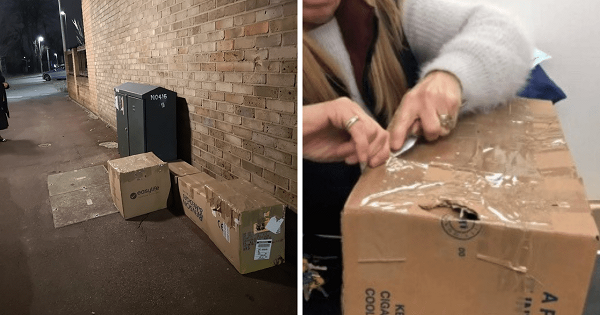The statement “ but my cat is healthy/fine on dry food ” means very little to me.
Every living creature is “fine” until outward signs of some disease process are exhibited. That may sound like a very obvious and basic statement, however, if you think about it…
Every cat with a blocked urinary tract was just “fine” until they started to strain to urinate and either died from a ruptured bladder or had to be rushed to the hospital for emergency catheterization.
- Every cat on the Feline Diabetes Message Board was “fine” until their humans started to recognize the signs of diabetes.
- Every cat with an inflamed bladder (cystitis) was just “fine” until they ended up in severe pain, started passing blood in their urine, and began to refuse to use their litter box because they associated it with their pain.
- Every cat was “fine” until the feeding of species-inappropriate, hyperallergenic ingredients caught up with him and he began to show signs of food intolerance/IBD (inflammatory bowel disease).
- Every cat was “fine” until that kidney or bladder stone became big enough to cause clinical signs.
- Every cancer patient was “fine” until their tumor grew large enough or spread far enough so that clinical signs were finally observed by the patient.
The point is that diseases begin to ‘brew’ long before being noticed by the living being.
This is the reason why the statement “ but my cat is healthy/fine on dry food ” means very little to me because I believe in preventative nutrition – not locking the barn door after the horse is gone. We don’t want to end up saying “oops……I guess he is not so fine now!!” when a patient presents to me with a medical problem that could have been avoided if he would have been feed a species-appropriate diet to begin with.
Of course, in order to be on board with the preventative nutrition argument, a person must understand the following facts:
- All urinary tract systems are much healthier with the appropriate amount of water flowing through them.
- Carbohydrates can truly wreak havoc on cats’ blood sugar/insulin balance.
- Cats inherently have an extremely low thirst drive and need to consume water *with* their food. (A cat’s normal prey is ~70 – 75% water – not the very low 5-10% found in dry food.)
- Cats are strict carnivores which indeed means that they are designed to get their protein from meat/organs – not plants.
Cats Need Animal-Based Protein
Cats are obligate (strict) carnivores and are quite different from dogs in their nutritional needs. What does it mean to be an ‘obligate carnivore’? This means that your cat was built by Mother Nature to get her nutritional needs met by the consumption of a large amount of animal-based proteins (meat/organs) and derives much less nutritional support from plant-based proteins (grains/vegetables). This indicates that cats lack specific metabolic (enzymatic) pathways and cannot utilize plant proteins as efficiently as animal proteins.
It is extremely important to remember that not all proteins are created equal.
Proteins derived from animal tissues have a very complete amino acid profile. (Amino acids are the building blocks of proteins. Think of them as pieces of some puzzle.) Plant-based proteins actually do not contain the full complement (puzzle pieces) of the critical amino acids required by an obligate carnivore. The quality and composition of a protein (are all of the needed puzzle pieces present?) is also called its ‘biological value’.
Humans and dogs can take the pieces of the puzzle in the plant protein and, from those, create the missing pieces. Cats are not able to do this. This is the reason why humans and dogs can live on a vegetarian diet but cats cannot. And vegetarian diets are not recommended for dogs.)
Taurine is one of the most important nutrients found in meat but it is missing from plants. Taurine deficiency will cause blindness and heart problems in cats.
The protein in dry food, which is often heavily plant-based, is not equal in quality to the protein you find in canned food, which is meat-based.
The protein in dry food, therefore, earns a much lower biological value score.
Because plant proteins are a bit cheaper than meat proteins, pet food companies will have a higher profit margin when using corn, wheat, soy, rice, etc.
Veterinary nutritionists and pet food company representatives will certainly argue that they are smart enough to know *exactly* what is missing from a plant in terms of nutrient forms and amounts – nutrients that could and would otherwise be in a meat-based diet. They will then be claiming that these missing elements are added to their diets to make it complete and balanced to sustain life in an obligate carnivore.
Does anyone really think that humans are that smart?
This is the type of arrogance that has led to fatal errors in the past. Not all that long ago (1980s) cats were literally going blind and dying from heart problems due to this arrogance. It was discovered in the late 1980s that cats are exquisitely sensitive to taurine deficiency and our cats were actually paying dearly for humans straying so far from nature in order to increase the profit margin of the pet food manufacturers.
There are many types of situations that can lead to a diet being deficient in taurine but one of them is using a diet that relies heavily on plants (grains, etc.) as its source of protein. Instead of lowering their profit margin and returning to nature by adding more meat to the diets, the pet food companies simple started supplementing their diets with synthetic taurine.
This might be all well and good for this particular problem, however, how do we know that we are not blindly going along unaware of other critical nutrients that are missing from a plant-based diet?
Why are nutritionists so arrogant to believe that we can safely stray so far from what a cat is designed by nature to eat?
Please note that synthetic taurine is manufactured from a chemical reaction and all taurine (at least that we know of) comes out of China. Given that country’s horrible track record with regard to food safety, we certainly would not want to depend on taurine from China’s chemical synthesis to meet my cats’ taurine needs.
With some regard to the overall protein amounts contained in dry versus canned food, do not be confused by the listing of the protein percentages on the packaging. At an initial glance, it might appear that the dry food has a higher amount of protein than the canned food, however, this is not true on a dry matter basis which considers the food minus the water. Most canned foods, when figured on a dry matter basis, actually have more protein than dry food. And remember, even if this was not the case, the percentage numbers do not tell the whole story. It is the protein’s biological value that is so critical.
So, let’s ask ourselves this following question: How many cats become ill or die from these species-inappropriate diets yet the patient’s diet is never even questioned at all as a possible cause of the illness or death? We cannot answer that question definitively but I have no doubt that the answer would be “many”.
Are cats able to survive on these heavily (synthetically) supplemented plant-based diets? Yes, many of them do.
Do our cats thrive on these diets? No, they do not.
You should pay special attention to the words ”survive” versus ”thrive” as there is a very big difference between the two states of health.
Fresh vs Highly Processed with Synthetic Supplements
There are two basic methods to meet our nutrient needs:
• Eat fresh food with a short ingredient list – or at least one that does not resemble at all a science experiment full of long names that are hard to pronounce.
• Eat highly processed foods which have had much of their nutrient content destroyed or altered, with food chemists ‘fixing’ the deficit with synthetic supplements. This type of unhealthy diet is consumed under the assumption that humans know exactly what was destroyed or altered during the processing and also what needs to be added back and in what form and amount.
Again, people are not that smart.
While canned food is not ‘fresh,’ as they say, dry food undergoes a harsher processing. It has been cooked at very high temperatures for a very long period of time. The extensive cooking required to remove most of the water from the food (70% moisture reduced to 5-10% moisture) significantly changes and alters the biological value of the protein sources and damages other vital nutrients.
Nutritionists then must guess which nutrients – in what form and amounts – were destroyed by this cooking process and then try to add them back into the diet. Occasionally ‘real food’ is then used instead of synthetic supplements but those long and hard-to-pronounce names on the ingredient list describe chemically synthesized nutrients.
Given that humans may never be as smart as nature – we will never know every detail of a cat’s normal prey – it is obvious that there is a risk when greed cause humans to stray so terribly far from a cat’s natural diet.
Source




